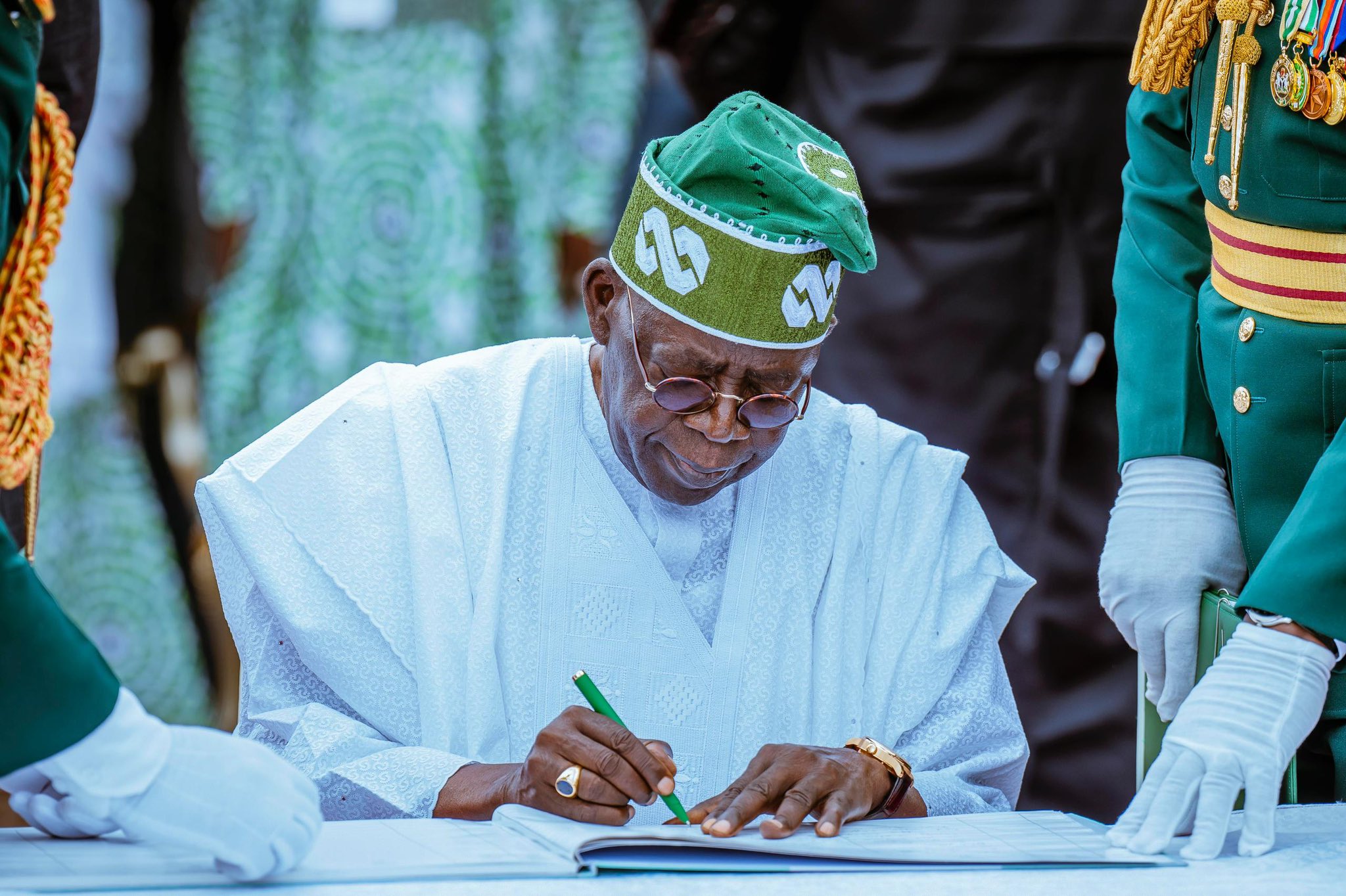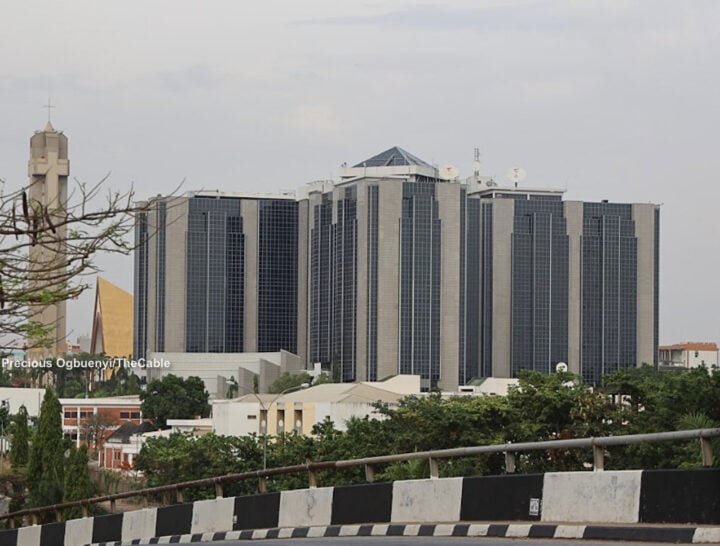BY EYITAYO O. ANDE
Many Nigerians marked the country’s 64th independence anniversary on October 1 with mixed feelings. While some were happy that for over six decades, we have been an independent nation experiencing more than 25 years of uninterrupted democracy in the fourth republic – which is something to cheer about, however, a majority of the citizens feel President Bola Ahmed Tinubu’s independence broadcast did very little to assuage and address the raging socio-economic issues of the moment.
Indeed, the issue of the economy clearly bigfoots every other agenda in the minds of the generality of Nigerians because essentially, the ‘economy is not smiling’, causing many to reel in dashed hopes. The expectations from many quarters, that the current president, whom many think to a large extent is poised and experienced for the highest office in Nigeria, would make living much more affordable, seem unrealisable.
With the current air of despair and despondency which is unmistakable, with many expressing fear for the future, there is perhaps no better time than this crucial moment to reminisce on the pomp and pageantry that greeted the October 1, 1960, independence ceremony and refresh on the iconic independence speech, which I believe heralded the launch of the ‘Nigerian Dream’, enthusiastically delivered by Alhaji Abubakar Tafawa Balewa, the Prime Minister of the Federal Republic of Nigeria, who rightly expressed the import of the moment and what it meant to the entire Nigerian population.
Advertisement
The excitement of the whole nation was well captured as Balewa declared with deep warmth to the teeming Nigerians and citizens of other countries who gathered at the Race Course, Obalende, Lagos: “At last, our great day has arrived, and Nigeria is now indeed an independent sovereign nation. All too soon, it has become evident that for us independence implies a great deal more than self-government. This is an occasion when our hearts are filled with conflicting emotions: we are, indeed, proud to have achieved our independence and proud that our efforts should have contributed to this happy event. But do not mistake our pride for arrogance. It is tempered by feelings of sincere gratitude to all who have shared in the task of developing Nigeria politically, socially, and economically.”
Since independence in 1960, Nigeria has seen mixed development efforts and results. Blessed with strong and purposeful leaders during this time such as Balewa, Chief Obafemi Awolowo, Dr. Nnamdi Azikiwe, Sir Ahmadu Bello – the Sardauna of Sokoto, Chief Dennis C. Osadebe, Chief Anthony Enahoro, etc, extraordinary individuals who demonstrated selfless and extremely visionary leadership which helped in many ways to shape the country, set the pace for economic development and national unity, and successfully steered the intricacies of regional philosophies in spite of the nation’s cultural differences and educational inequality.
Looking at the nation’s socioeconomic trail since independence, however, it is palpable that the gains in various forms and shades – economically, politically and socially, recorded by a bunch of these cosmopolitan great leaders at the onset of our republic have not been without a collection of anti-development disorders. These have prevented the nation from meeting the towering and sublime dreams and aspirations of our founding fathers since 1960, especially for profound economic growth and effectively setting the stage to compete favourably on the geopolitical landscape. Many argue that Nigeria is not any better today than she was before independence because of the multitude of socio-economic and political struggles the country has been ferociously grappling with.
Advertisement
In one of the editorials of the BBC News of February 27, 2024, titled “Why Nigeria’s economy is in such a mess”, it was stated that, “Nigeria is currently experiencing its worst economic crisis in a generation, leading to widespread hardship and anger”. In over six decades after independence, without a doubt, the bane of Nigeria has been her inability to fix the economy since the country’s massive economic potential is constrained by so many structural issues, many of which our political leaders have not had the
will to solved in years.
I dare say that these defective historical, social and structural issues provide veritable platforms for corruption, which can be expressed as a well-planned and premeditated way of people taking resources that do not belong to them, to flourish ruthlessly at the expense of others.
It is universal, pretty much without exception, that the reason Nigeria has not attained economic independence since she became a sovereign nation is due to what I believe is the number one problem facing our country; the widespread corruption, one which threatens the independence of this country if not confronted intentionally and conscientiously by our political leaders. Beyond this is the assortment of views torn between the scourge of insecurity and crime, external influences, and chronic inequality – social, political, gender, etc, devastating our country.
An article two years ago in the Leadership Newspaper titled, “62 years of Nigeria, How have we fared?” by Ray Morphy, highlighted how since independence, the UK-based “The Economist” magazine disclosed how an estimated $600 billion is believed to have been stolen from Nigeria since independence in 1960 via corruption.
Advertisement
The Economist magazine stated, “Light-fingered tyrants are looking back wistfully. In past decades, they could stash their illicit wealth in the West. Friendly lawyers, banks, and middlemen were on hand to pack the loot. Sani Abacha, the military dictator who ran Nigeria in the 1990s, deposited billions of dollars in banks across the rich world, no questions asked. Western governments seemed equally unfussed.” If this stolen figure is anything to go by, it simply means, distressingly though, that a sum total value of about two and half of the size of our current economy, which is meant to be the collective wealth of all Nigerians, resides in the hands of a selected few in just over six decades.
No successive governments since the advent of our independence, whether democratically elected civilian government or the military junta, in my opinion, assumed power without having lofty economic initiatives and agenda assembled, which are designed to effectively employ the country’s massive natural and human resources to build a robust, transparent and strong economy required to alleviate poverty and hunger, build state-of-the-art infrastructure to create economic activities, and improve the lives of the people, but the fundamental encumbrance has been the ‘corruption pandemic’.
Corruption in Nigeria dates back to 1914 during the amalgamation of the Southern and Northern protectorates to form Nigeria according to an editorial in the ‘Business Day’ of January 9, 2022, titled “The Origin of Corruption in Nigeria”. Also, Major Chukwuma Kaduna Nzeogwu, during his 1966 coup speech, alleged public servants in the First Republic to have taken ten percent kickbacks from contracts. Painfully, the stomach-turning truth is that 64 years after independence, our public institutions that were designed to play historic roles in helping to chart a new course for the nation to develop economically and socially are hyper-partisans, as the issue of corruption has now assumed a dangerous shape in our polity, frustrating and hampering the nation’s quest for any meaningful economic growth and development.
The current party in power at the federal level, the All Progressives Congress, touted since its formation as being the party of the progressives and of the working class, would certainly be unable to achieve its cardinal economic objectives, no matter how vibrant they may seem if the problem of corruption is not given the attention it seriously deserves. Nigerians are upbeat, awesome people who have tremendous grace, tenacity and generosity but are torpedoed as they currently crumble under the weight of the present harsh economic realities given the affordability crisis rocking the poor and middle-income earners. Over the years, they have waited with bated breath and courage, yearning for the best. Prices of goods and services have gone up at a much faster rate than wages have, and Nigerians, especially those of the middle class and the poor, understand the impact this is having on their lives, and are requesting the simplest of things; for Nigeria to shore up her vulnerabilities and government at all levels, to provide good governance to help them live quality lives towards attaining the ‘Nigerian Dream’.
Advertisement
In my view, the ‘SAP-like’ currency devaluation we are presently experiencing when our economy is essentially an import-centric one – practically producing little to nothing of value for the global market, is a recipe for disaster. Moreover, the venality and the systemic inefficiencies that seem to exist in our tax system and other revenue-generating agencies of government need to be decimated if the country must shore up her revenues and create sufficient liquidity to rightly diversify from the oil and gas sector and focus on the Small and Medium-sized Enterprises and the real sector to stimulate our non-oil sector.
To achieve the nation’s quest for economic independence, the stakes cannot be higher for President Tinubu to address the leadership deficit inherent in the system, as well as tackle decisively, the corruption and the lack of respect for the Rule of Law in our society; in addition to possibly reducing the corporate income tax rate to attract capital which is urgently required to facilitate a private-sector driven economy and enhance output.
Advertisement
Furthermore, ensuring that all transactions – personal or corporate, are captured in the tax net and tax rendition are done timely and correctly would significantly step up government revenues which ultimately would spur economic growth.
Ande, a financial analyst, writes from Lagos
Advertisement
Views expressed by contributors are strictly personal and not of TheCable.
Add a comment






